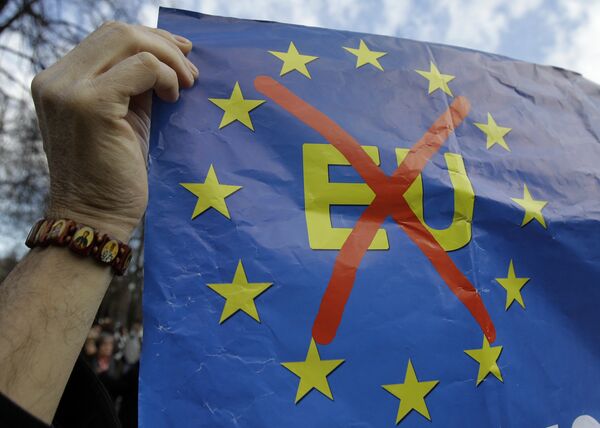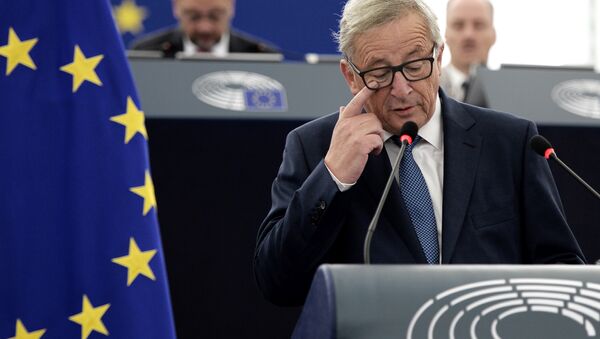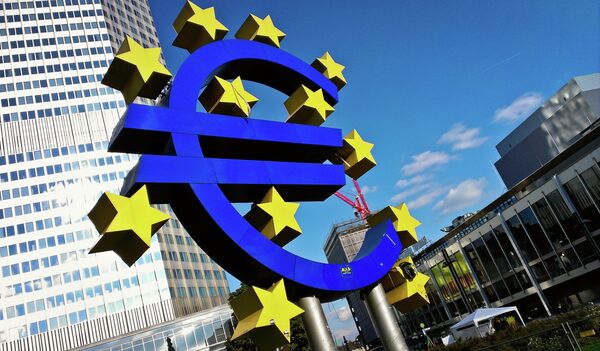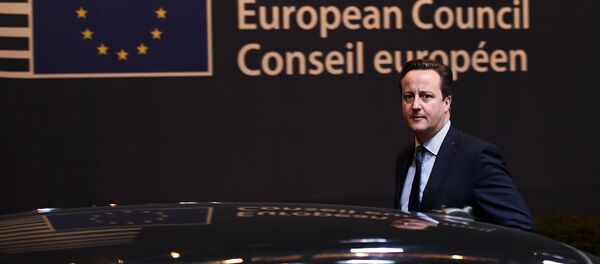Prior to December 1991, a group of European countries — initially France, West Germany, Italy, Belgium, the Netherlands and Luxembourg — had formed, via the Treaty of Rome 1957, the European Economic Community. Over the years, the trading bloc was enlarged to incorporate East Germany (post-reunification), Denmark, Ireland, the United Kingdom, Greece, Portugal and Spain.
With other countries angling to join the club, calls grew for a formal single market, with allied extensions of powers and cooperation, which inevitably led to the Maastricht Treaty — the second major treaty of the EU as we know it, since the Treaty of Rome, 1957.
"we had the feeling that we were making history" @JunckerEU on drafting the #MaastrichtTreaty #EuropeCalling #EU #Maastricht
— Europe Calling! (@EuropeCallingEU) 9 December 2016
The Maastricht Treaty created the European Commission, the European Parliament and the European Court of Justice and led to the creation of the single currency, the euro.
Over time, enthusiasm — principally on the western European mainland — for further integration led to the signing of the Treaties of Amsterdam, Nice and Lisbon — all of which created the EU as it is known today.
Herman Van Rompuy, the first full-time President of the European Council said: "Maastricht was a qualitative jump to further integration", which became enshrined in the mantra "ever closer union" that former UK Prime Minister David Cameron spend much of his time in the run-up to the Brexit referendum attempting to distance Britain from.
Rise of the Right
However, 25 years is a long time in European politics and the Brexit result as mirrored growing euroskepticism throughout what are now the 28 member states. The UK Independence Party in Britain forced the Brexit issue.
The rise of Marine Le Pen's Front National in France, Alternative for Germany, Law & Justice (now in government in Poland), Geert Wilders' Party for Freedom PVV in the Netherlands, Golden Dawn in Greece, and may others have tapped into the rising antipathy towards the Brussels regime, which many see as too centrist.
.@JunckerEU "25 yrs from now? I would want the #EU to still be an influential player in the world, assuring its own security" #EuropeCalling pic.twitter.com/d8a2OIvHml
— Natasha Bertaud (@NatashaBertaud) 9 December 2016
Even today's European Commission President Jean-Claude Juncker admits Brussels has become too big and people across Europe want to take democracy and ownership back — not only to national levels, but to regional and local control.
"Let's focus on the important matters and not regulate everything, certainly not when the rules affect the everyday lives of people. And let's certainly not refer to the 'United States of Europe'. People don't care for that. They want to be Limburgers, or Luxembourgers, or Walloons, or Flemings, or Bavarians or Tyroleans," he told the 'Europe Calling!', Maastricht 25th anniversary meeting, December 9, in the Dutch city.
New World Disorder
However, others have new visions for the EU — not least former Belgian Prime Minister, Guy Verhofstadt, who leads the Liberals and Democrats (ALDE) Group in the European Parliament. He has just won support for a "drastic rationalisation" of the EU architecture.
Happy with approval of my report setting out proposals to reform EU. It's the first step towards reforming Europe https://t.co/Pm7Gai4eJs
— Guy Verhofstadt (@GuyVerhofstadt) 8 December 2016
Verhofstadt is calling for the European Commission — currently the 'civil service' of the EU — to become "a real government". He wants the creation of a single Foreign Minister and Finance Minister, to take sole control of those competencies throughout the EU.
Significantly, where now all the 28 governments thrash out deals between themselves before putting them to the various EU institutions, Verhofstadt sees the creation of "only one single Council — representing the states — that decides" and the total reform of the parliament — the elected representatives of the member states, to have total control over the budget, revenue and spending.

Verhoftsadt's view of a new EU flies in the face of rising nationalism and opposition to the centralist doctrines of the Brussels (Strasbourg and Luxembourg) machines. The Europe envisaged 25 years ago in Maastricht faces completely new challenges.
What had started as an economic trading bloc, became a political vehicle in 1991, which in 2016 is facing the realities of the new world order — or disorder — and the EU as it stands today will have to change if it is to survive. Verhoftstadt envisages further integration where others see disintegration. Another 25 years will tell.




